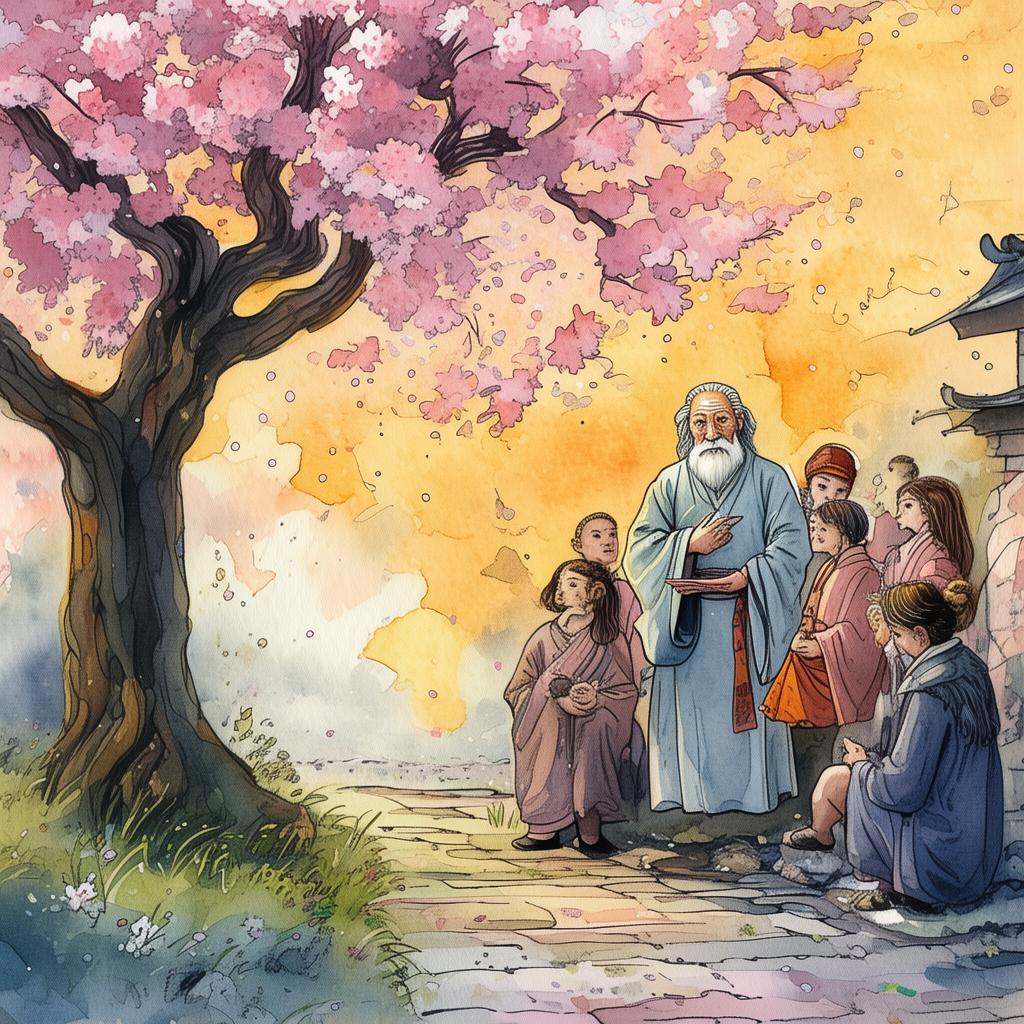Flavors of Deceit: The Chef's Secret Ingredient
In the bustling streets of the ancient capital, a chef named Li Ming stood before his wok, the heat from the flames reflecting in his eyes. He was known for his mastery of flavors, his dishes as intricate as the ancient scripts that adorned the walls of his restaurant. The Taste of the Past was not just his livelihood; it was a testament to the generations of chefs who had passed down their skills to him.
Li Ming's restaurant, a beacon of culinary art, was a sanctuary for those who craved the taste of history. His specialty, the "Imperial Delight," a dish that was said to have been crafted by the hands of the empress herself, was a dish of such exquisite taste and presentation that it was as much a work of art as it was a meal.
However, the secret ingredient that made the "Imperial Delight" so remarkable was not a rare herb or exotic spice. It was a recipe passed down through generations, a secret so precious that it was kept in a hidden compartment within the wok itself. The recipe was the family's legacy, the cornerstone of their reputation.

But as the story unfolded, a shadow loomed over Li Ming's culinary masterpiece. His younger brother, a man of ambition and avarice, had discovered the secret ingredient. Seeing the potential for fortune, he hatched a plan to take over the restaurant and claim the secret for himself.
The brother's deceit was not just in his intent to steal the recipe but in the manner in which he went about it. He began to poison the minds of his brother's loyal customers, spreading rumors that the "Imperial Delight" was no longer worth the price. Li Ming, though skilled and passionate, was naive in the ways of the world and the darker side of human nature.
The first sign of trouble came when a customer, a prominent merchant, walked out of the restaurant with a look of disgust. "Li Ming, I'm disappointed," he said, his voice laced with disdain. "The dish lacks the... pizzazz it used to have."
Li Ming, taken aback, asked what he meant. The merchant, with a sly grin, mentioned a "new recipe" that had supposedly been introduced. Li Ming's heart sank, and he knew the truth: his brother had started his campaign of deceit.
Determined to save his family's honor, Li Ming began to investigate. He delved into the ancient texts, searching for clues that might reveal a way to outwit his brother. Along the way, he encountered old friends and allies who had once sworn to protect the secret, only to find that many had fallen prey to his brother's guile.
As the story progressed, Li Ming's quest led him to a clandestine meeting with an elderly chef, a relic of the past, who had once known the empress herself. The chef, a wise and aged man, revealed that the true "Imperial Delight" was not in the recipe but in the chef's understanding of the dish, the care and passion that went into each serving.
Li Ming, with this newfound knowledge, decided to fight back. He planned a grand feast, inviting all his loyal customers, including the merchant who had turned against him. On the day of the feast, Li Ming's brother arrived, a man who believed his plan was set in stone.
The climax of the story was a battle of wills and flavors. Li Ming's brother, confident in his scheme, presented his own version of the "Imperial Delight," a dish that was devoid of the soul and history that Li Ming's was imbued with. As the guests sampled the two dishes, the difference was palpable.
In the end, Li Ming's customers recognized the truth, and his brother was exposed. The restaurant's reputation was restored, and Li Ming's family's legacy was saved. The "Imperial Delight" remained a symbol of their dedication and craft, a testament to the chef's ability to bring history to the table.
The story concluded with Li Ming, now wiser and more resolute, standing before his wok once more. He knew that his journey was far from over, but with the support of his customers and the legacy of his ancestors, he was ready to face whatever challenges lay ahead.
✨ Original Statement ✨
All articles published on this website (including but not limited to text, images, videos, and other content) are original or authorized for reposting and are protected by relevant laws. Without the explicit written permission of this website, no individual or organization may copy, modify, repost, or use the content for commercial purposes.
If you need to quote or cooperate, please contact this site for authorization. We reserve the right to pursue legal responsibility for any unauthorized use.
Hereby declared.









